Nowadays mobile phones have more and more impact on daily life. But this doesn’t mean people are obsessed with top brand handsets. Vice versa, the pricing for them is getting lower. So a thousand-yuan ($145) budget will allow you to get your hands on a pretty nice device. This niche is overpeopled. That’s why smartphone makers make more powerful, stylish and better devices to stay afloat. Currently there are many handsets sporting the same features what you can find on high-end models. Those features include metal housing, fast charge options, larger memory and so on. However, the best examples of this niche still continue to be the Xiaomi Redmi 4 Prime, Meizu M5, and Lenovo ZUK Z2. They may seem a bit outdated in comparison to the Xiaomi Redmi Note 4X and Meizu M5S. But these models are the founding fathers of thousand-yuan smartphones niche. So we decided to compare these beasts.
The Xiaomi Redmi 4 Prime and Lenovo ZUK Z2 sport displays at 5 inches and Full HD resolution (1920 x 1080p), while the Meizu M5 comes with a 5.2-inch display at a resolution of 1280 x 720 pixels. Though the latter differs from its rivals, a naked eye can’t determine any difference.
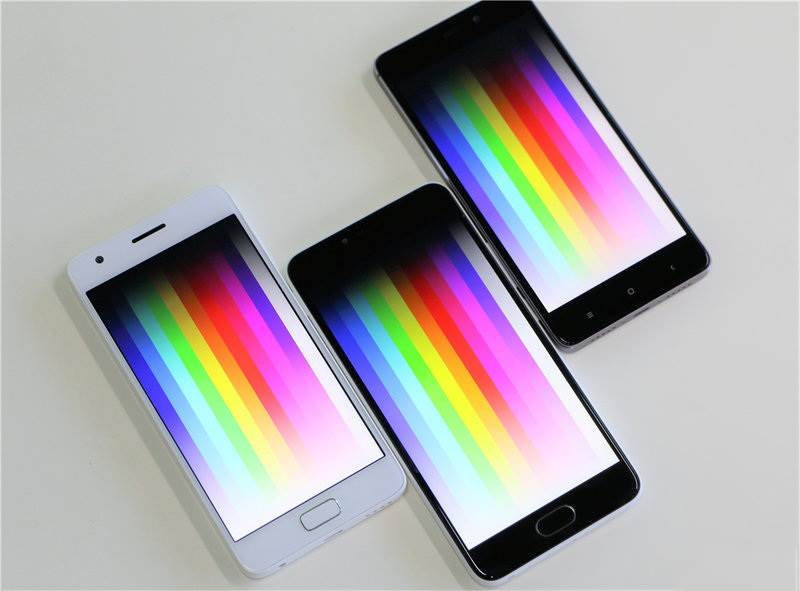
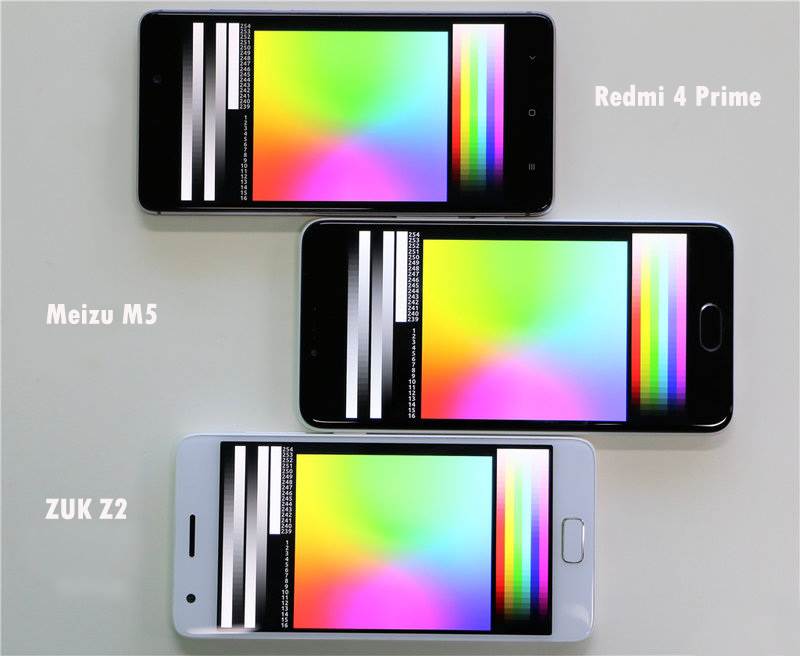
On the other hand, if looking at the same photo via these handsets the contrast differences become obvious.
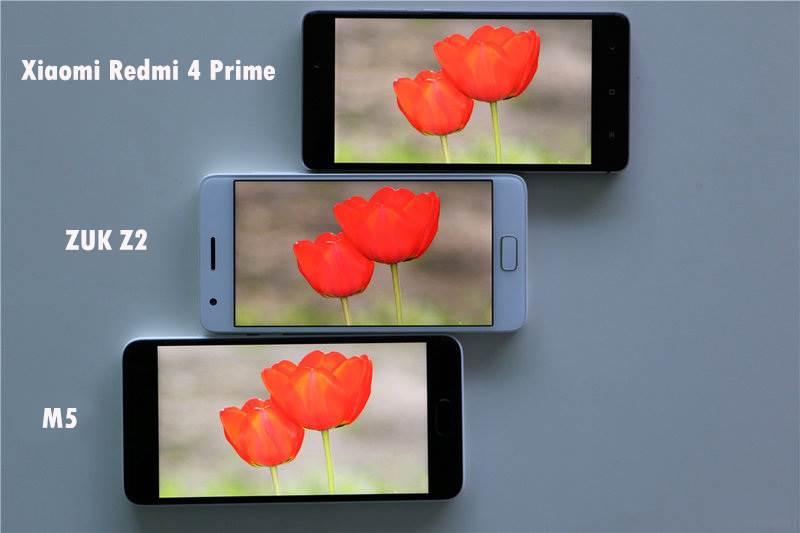
When comparing these phones in terms of brightness, we can see the Meizu M5 provides the best view (all phones are set at 50% of brightness).

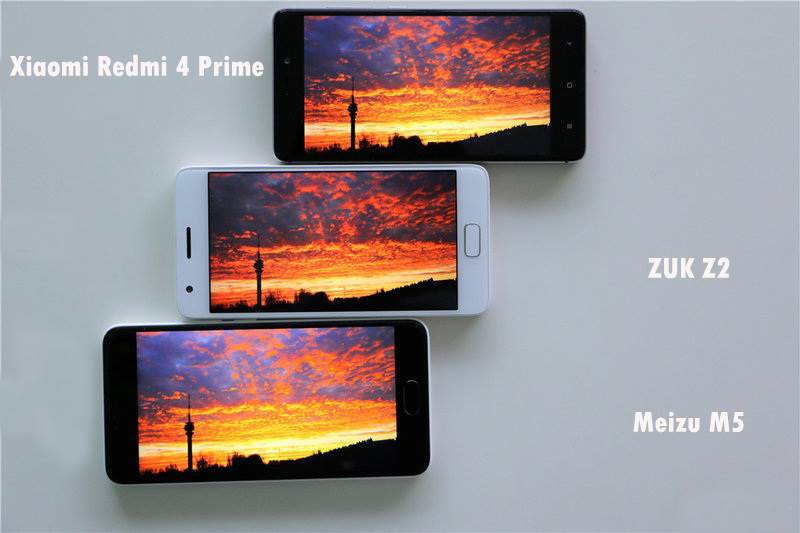
When viewing pictures rich of bright colors like green we can see the worse result performance is provided by the Lenovo ZUK Z2, which have obvious reddish shades.
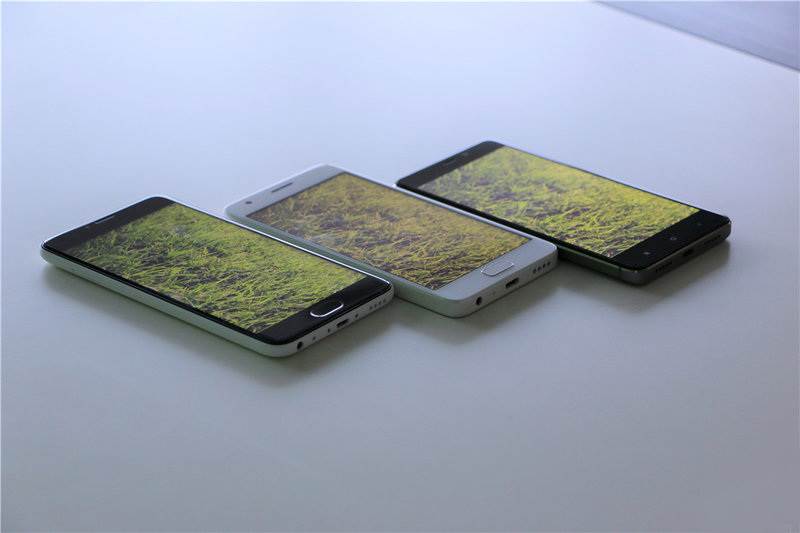
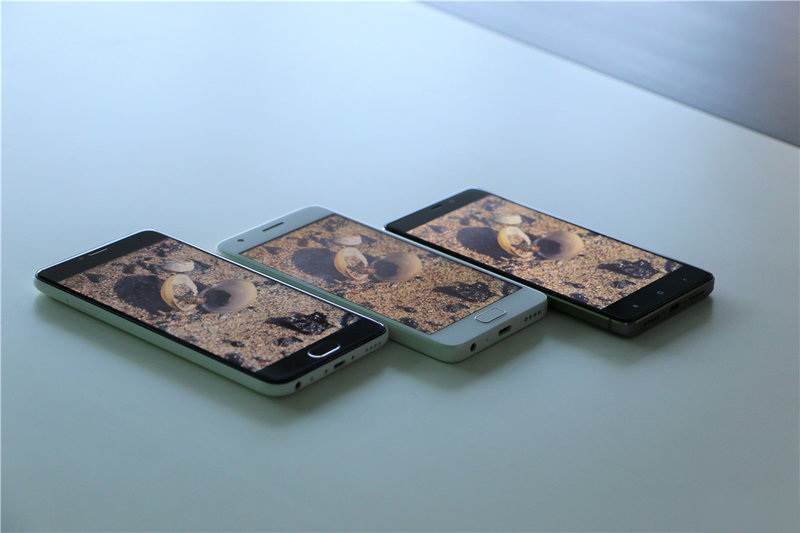
As for viewing angle, all three models have the same level.
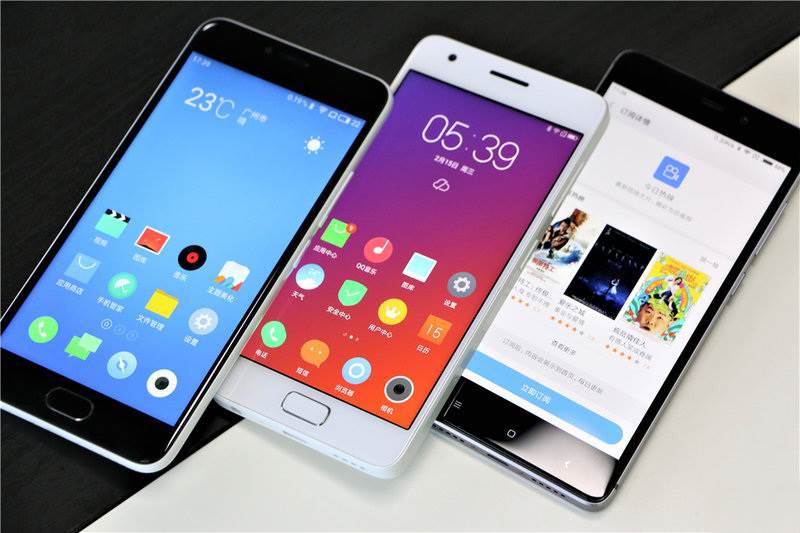
Verdict: The Xiaomi Redmi 4 Prime is the winner in this mini-battle thanks to a 5-inch Full HD and accurate color reproduction. The second place is occupied by the ZUK Z2, because it provides brighter viewing performance. But it yields the Redmi 4 Prime due to some reddish shades. Finally, the Meizu M5 is on the third position because of a 720P display. But to be honest, it has the highest level of brightness.
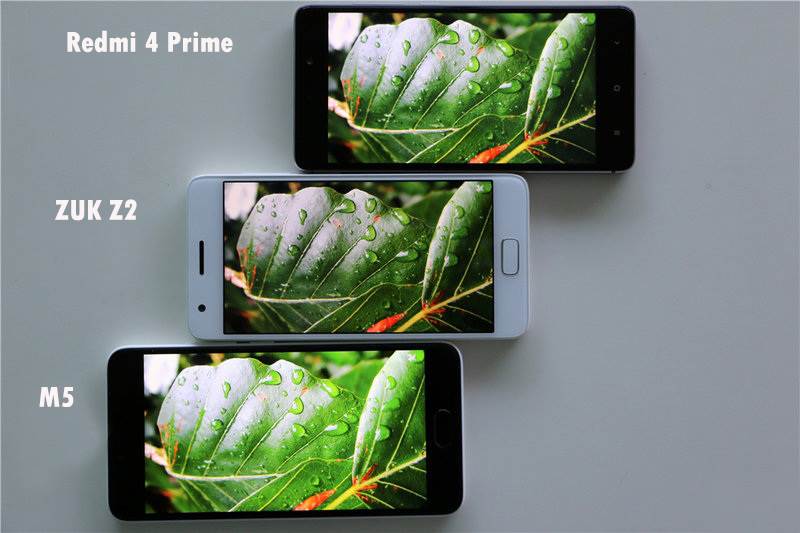
Cameras on smartphones are decisive. That’s why manufacturers try to pack their handsets with better camera modules. The thousand-yuan niche is no exception.
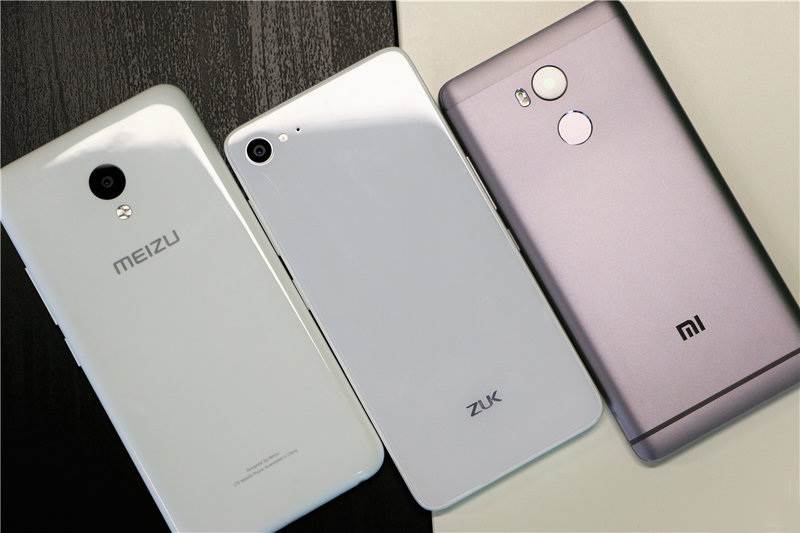
All three models feature rear cameras at 13MP, but the sensors models and apertures are different. As a result they provide quite different shooting experience. It is obvious when looking at sample photos below. Green color dominates in the first photo (Lenovo ZUK Z2). The Redmi 4 Prime’s sample comes with yellow shades, while the Meizu M5’s sample provides reddish photos.

The next bunch of sample photos show the brightest capture is provided by the Redmi 4 Prime. So it’s more pleasant to eyes than the photos taken by the ZUK Z2 (left) and Meizu M5 (right).

As for indoor shooting, the brightest photos are provided by the Redmi 4 Prime. Because of lack of brightness the Lenovo ZUK Z2 and Meizu M5 come with more gray shades. So the overall color performance is more vivid at the XIaomi Redmi 4 Prime captures.


Lenovo ZUK Z2

Meizu M5
Xiaomi Redmi 4 Prime
Verdict: As all three models come in with different sensors and apps, the color reproduction, brightness and other features are quite different. But as many customers pay more attention to the white balance, we decided to put the Meizu M5 on the first position as its performance is more accurate. The Xiaomi Redmi 4 Prime is the second due to brightness and the ZUK Z2 is the third.
When talking about the appearance of a phone first we pay attention to the material its housing is made of. Different materials provide different feel and appearance. Currently more and more manufacturers use metal as the material for their handsets. So we have to write down there is a huge progress from times of plastic bodies to the current state.
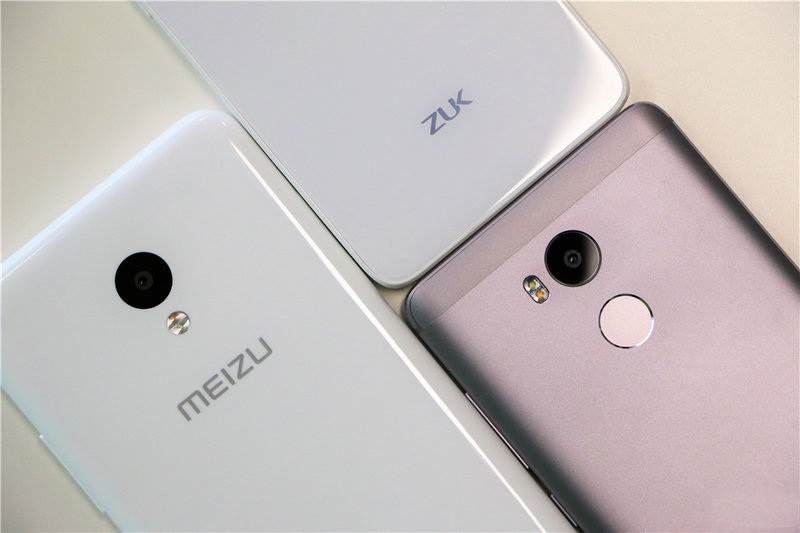
Each of these handsets come with different material. The Meizu M5’s body is made of polycarbonate. As you know, this is one of the most popular materials used for making smartphones’ housing. Thanks to wide temperature range it’s easier to shape, paint and color. Meizu has added a paint spray and pearl powder to make the M5 to look like a metal-body handset.
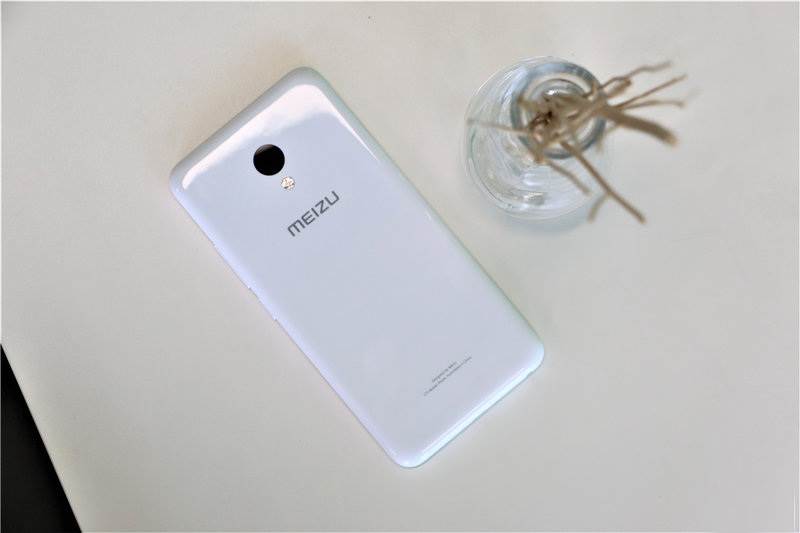
The physical buttons are made of polycarbonate as well. So the overall body comes at a highest build quality. But plastic provides another kind of feeling. Plus, it can be scratched easily.
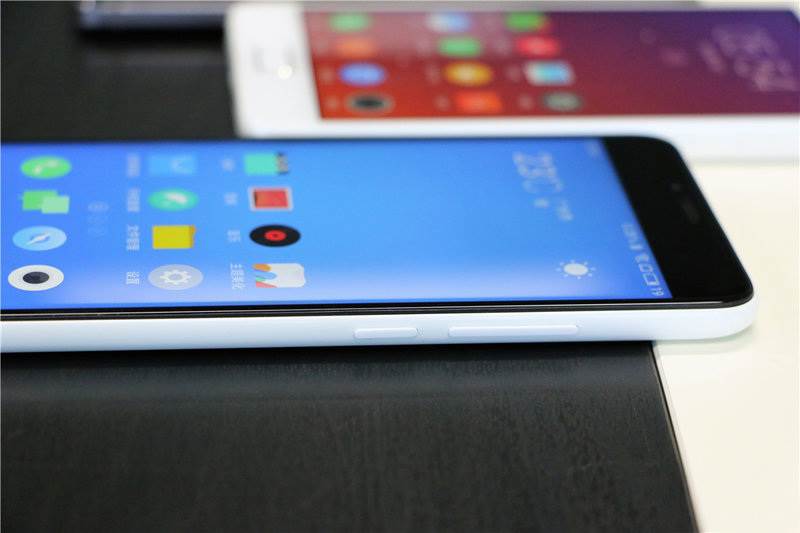
There is also the much popular mBack button responsible for fingerprint identification, Home key, back, and other funtions. The Meizu M5 also supports Alipay and WeChat fingerprint payment features. At last, the Meizu M5 comes in various color options including Mint Green, Glacier White, Champanage Gold, Sapphire Blue, and Matte Black. The color reflection differs from color to color.
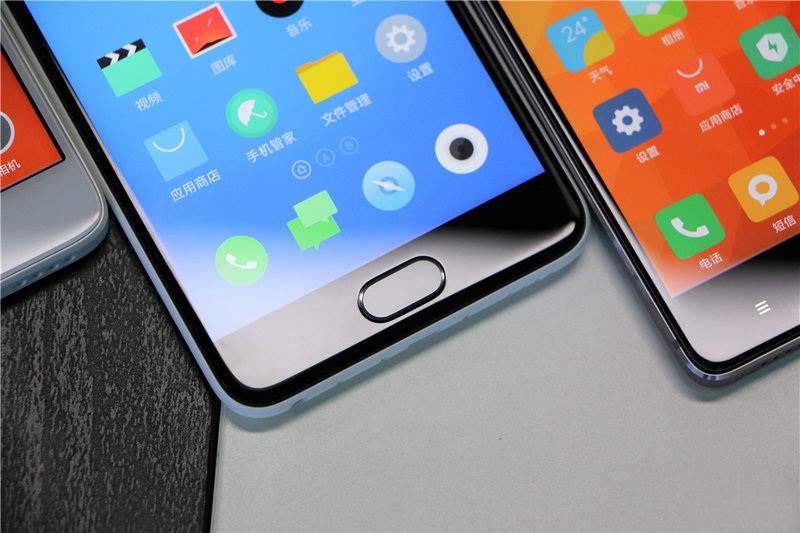
The ZUK Z2 comes with a double glass ‘sandwich’ structure. Those who have used phones with glass housing know the feeling of such devices is ethereal. That’s why many top smartphone makers such as Apple and Sony use this material for their high-end models.
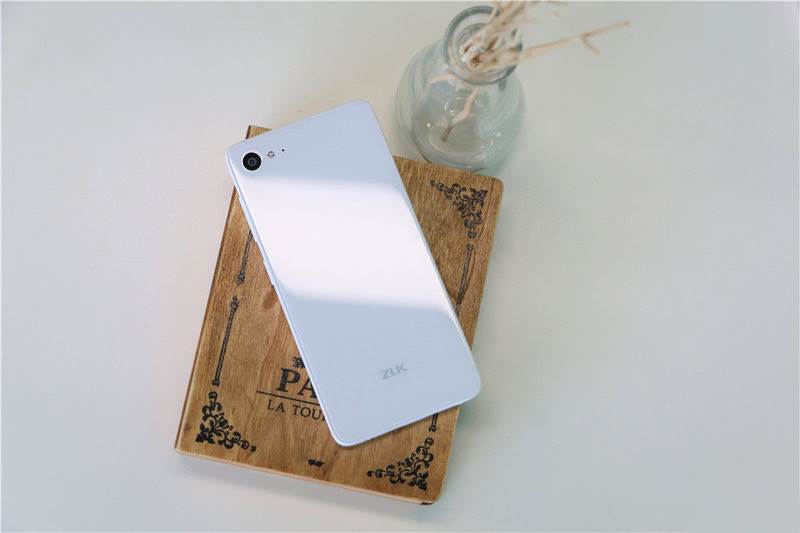
There is also a U-Touch Home key below the screen. The manufacturer claims this button can be used over 300.000 times. It carries a fingerprint scanner supporting WeChat, AliPay, and FIDO pay. So the key’s area is a bit larger.
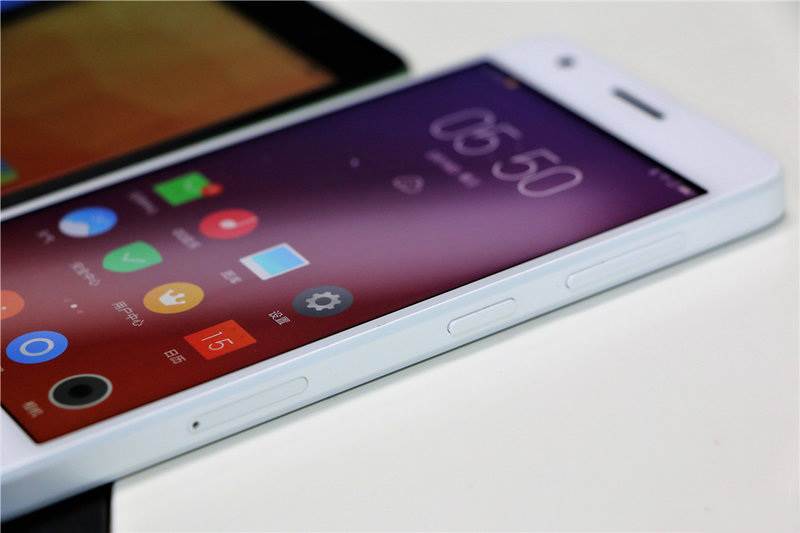
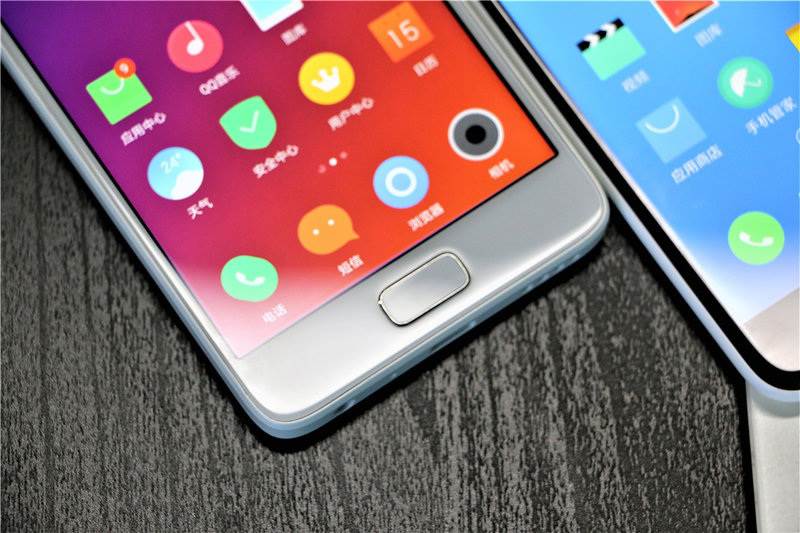
As for the Xiaomi Redmi 4 Prime, it comes with a metal housing passed CNC crafting process. Thanks to the sandblasting process every detail is made perfectly. The front panel is covered with a 2.5D arc glass. So this combination of a metal and glass makes it competitive to any material.
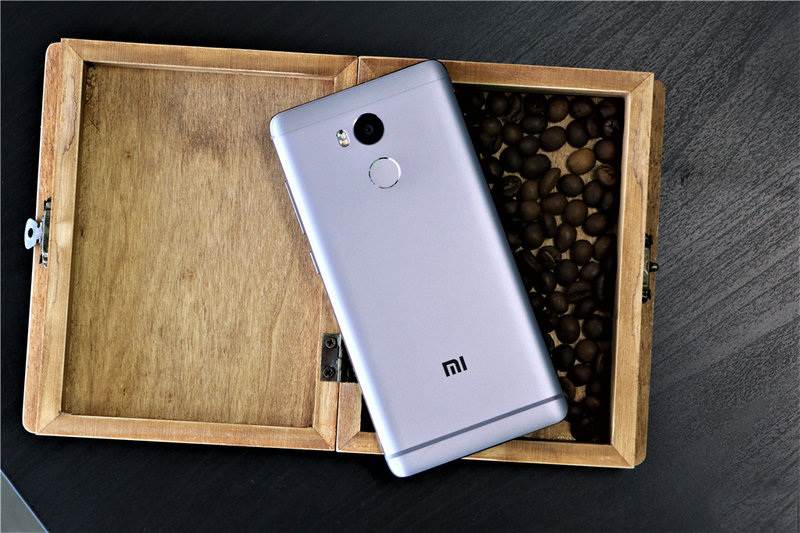
The buttons located on sides are made of metal as well.
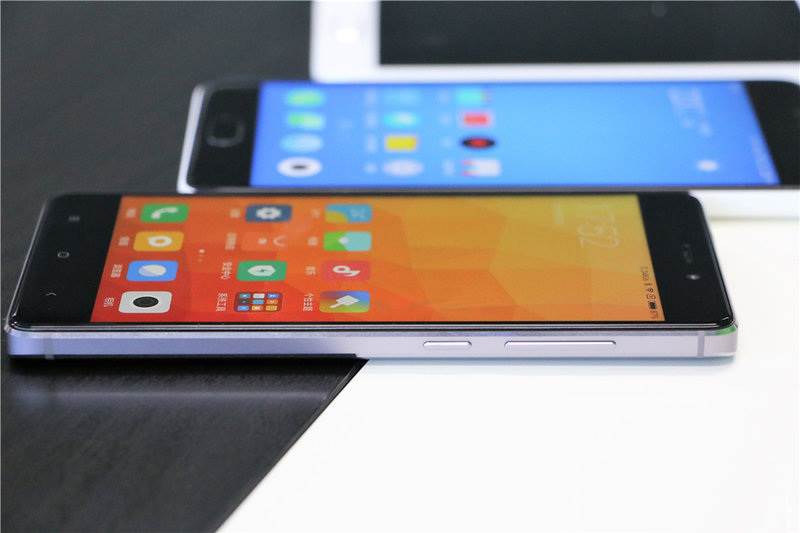
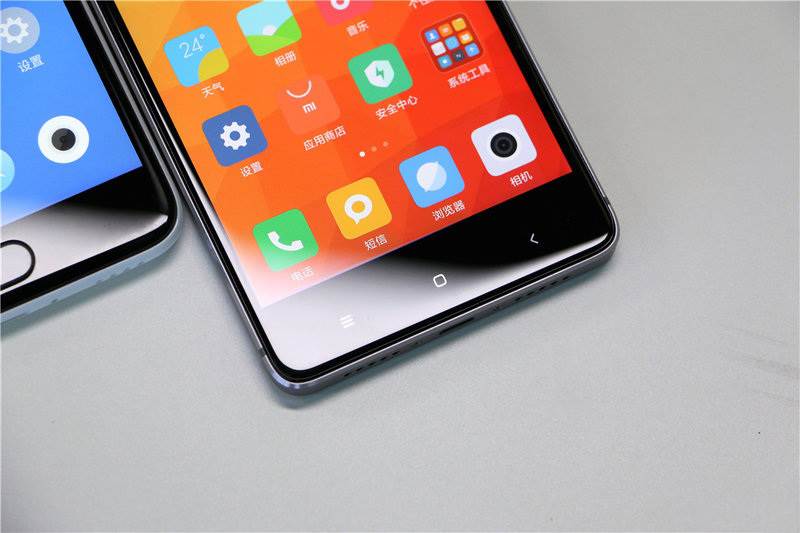
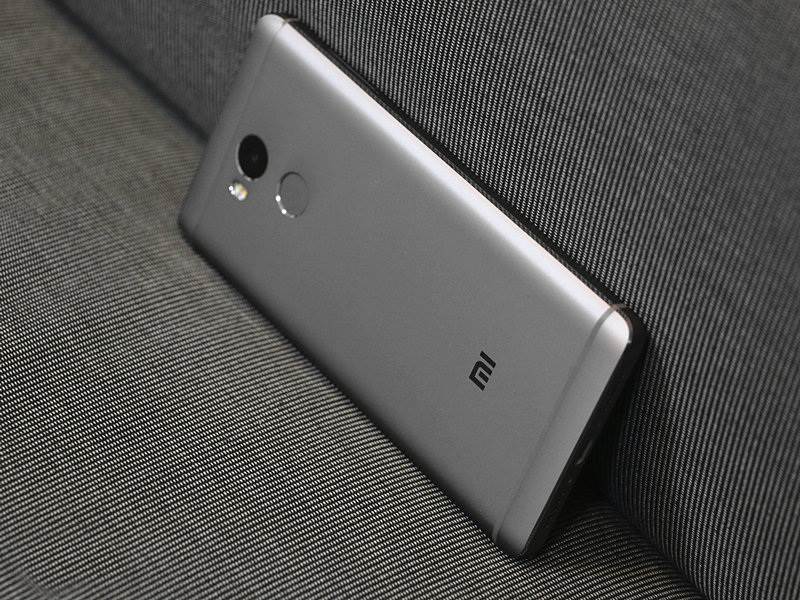
As for the back panel, the manufacturer has used two different technologies for the top and bottom sides. The top part uses hollow injection molding process, while the bottom is a common antenna with nano-injection molding. Many customers do not appreciate its appearance, but it provides the best signal quality.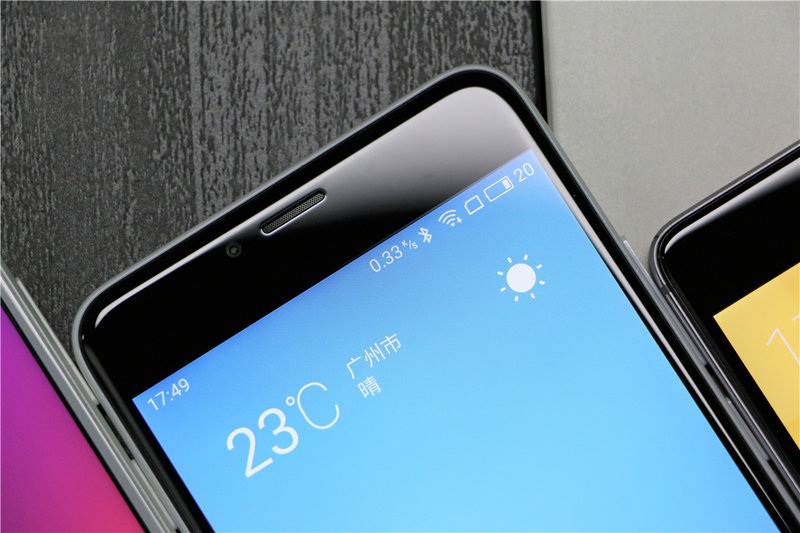
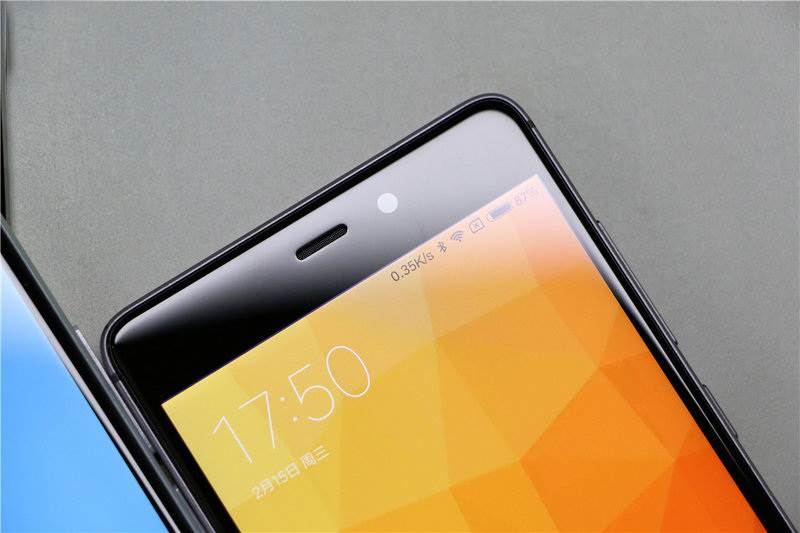
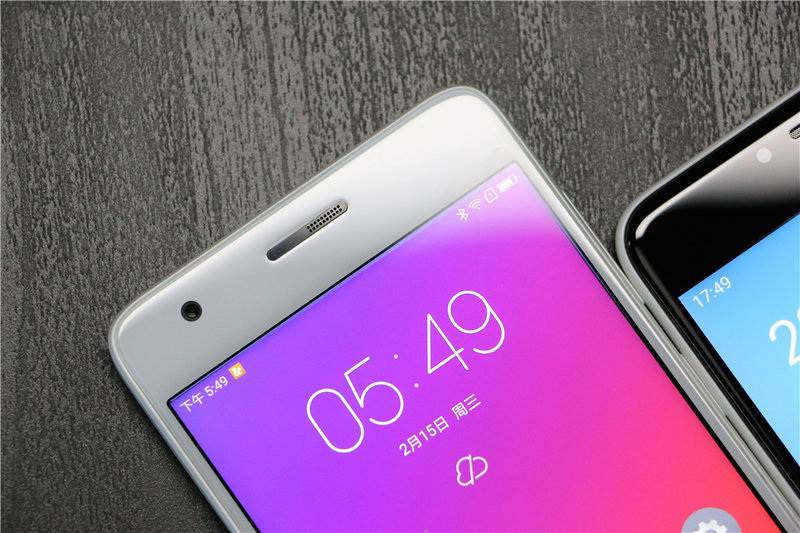

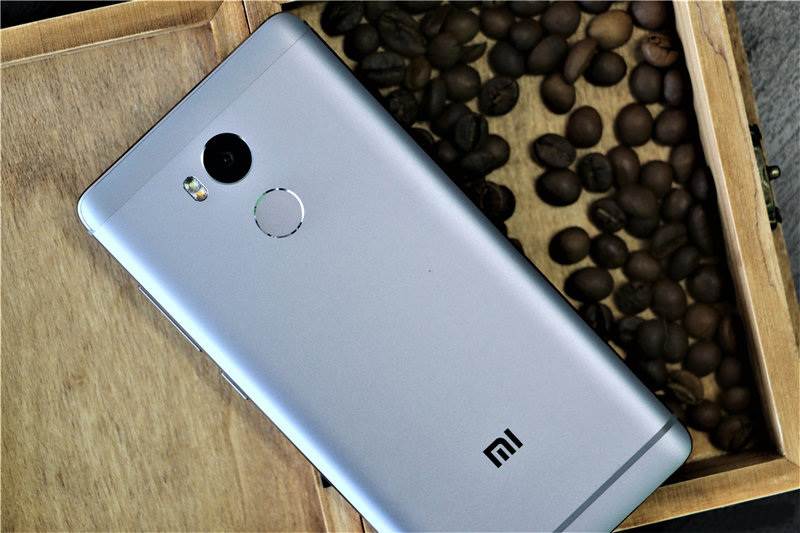
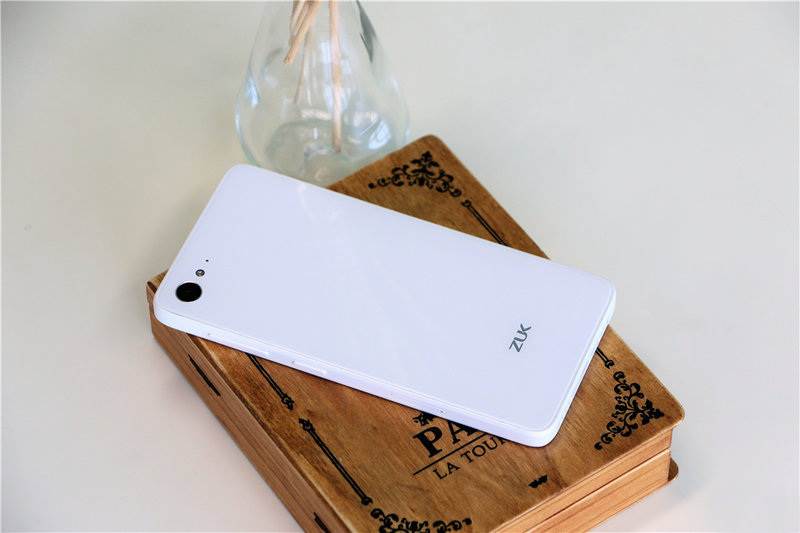
Verdict: The Meizu M5’s plastic body looks more attractive. It’s also cheaper than other materials. No reason to worry about the signal as well. But it has a list of disadvantages such as scratches. The metal housing of the Redmi 4 Prime is acceptable, but as there is a glass-body ZUK Z2, we think it’s the winner.
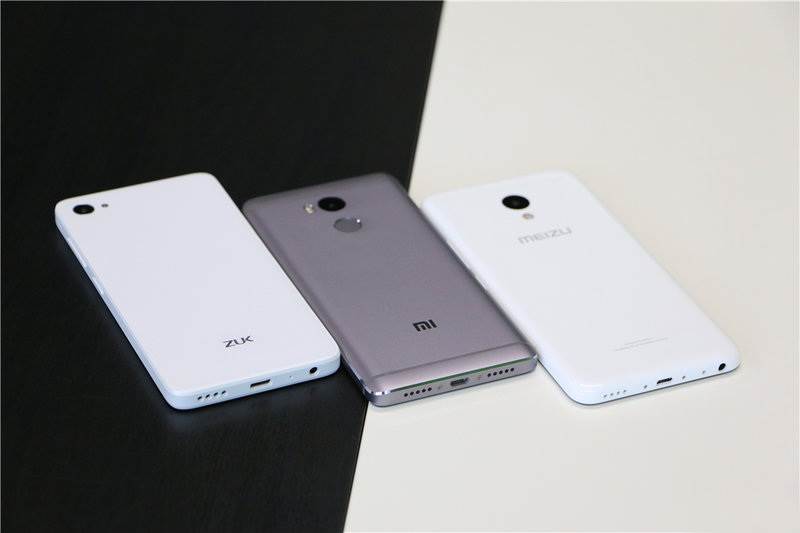
Currently many smartphone makers try to improve the batter life of their products expanding the battery capacity as well as coming in with innovative technologies. These smartphones have something to offer.
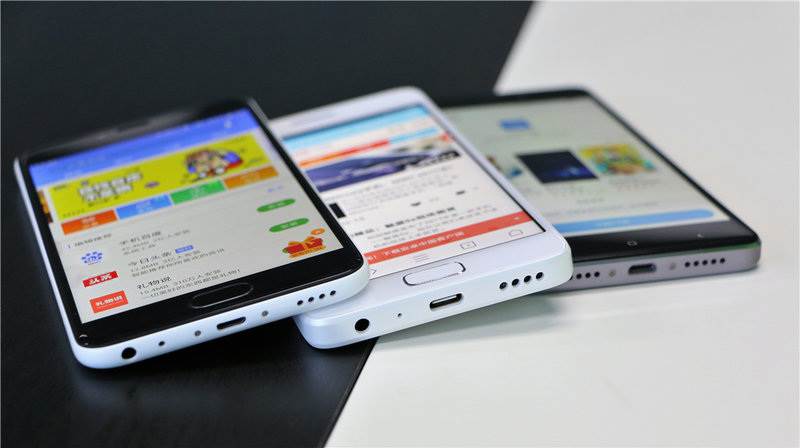
The Meizu M5 sports a 3070mAh battery; the Redmi 4 Prime sports a 4100mAh battery; and the ZUK Z2 comes with a 3500mAh battery. We have tested them via AnTuTu to find out which of them wins the race.
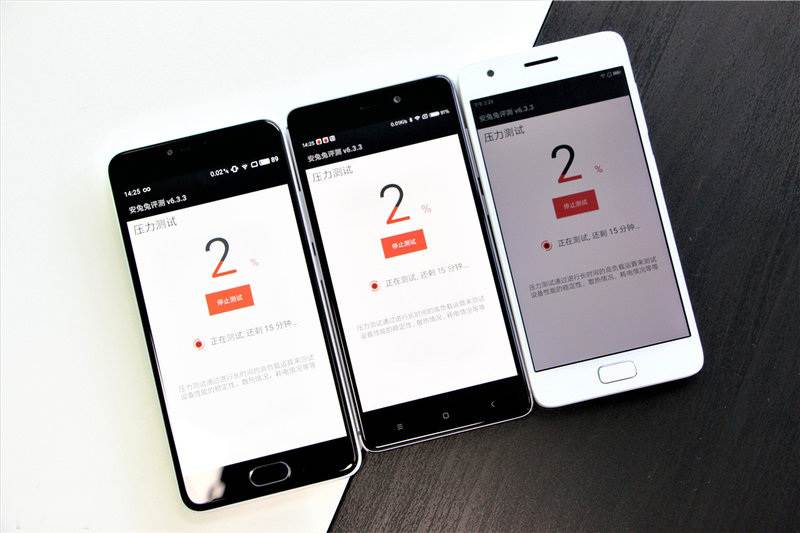
The power is 90%. The display brightness is set to 100%. The recording is made every 10 minutes.
After 60 minutes of heavy testing the ZUK Z2’s power is still remaining 68%. Total power consumption is 22%. 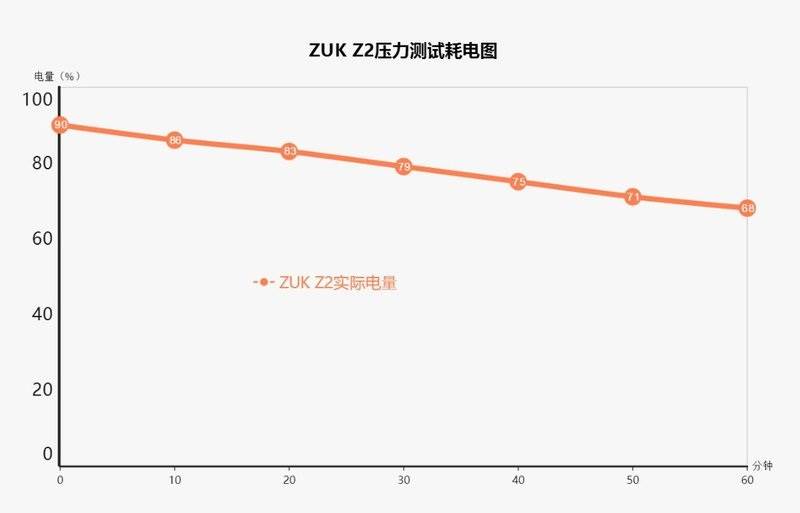
The Redmi 4 Prime still have 72% of power. Total consumption is 18%.

Finally the Meizu M5 still has 65%. Total consumption is 25%.
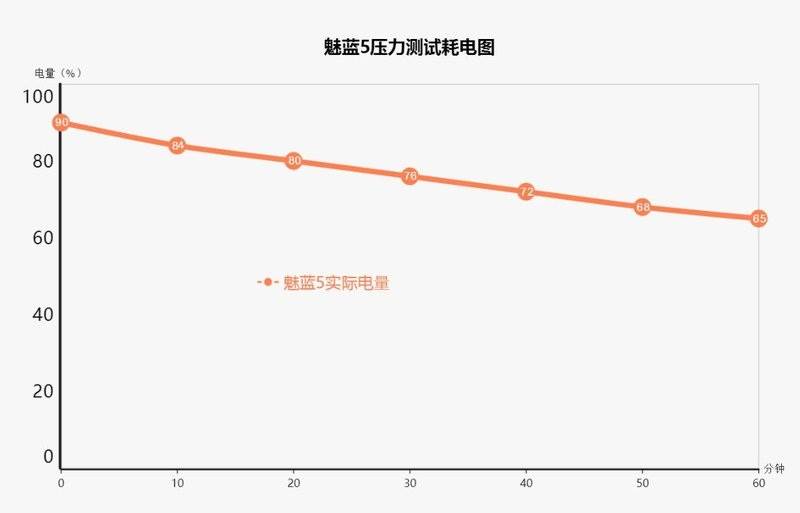
Verdict: So the Xiaomi Redmi 4 Prime showcases the best result. But the ZUK Z2 features a battery with 600mAh less capacity than the Redmi 4 Prime. The test shows it yields the Xiaomi phone only by 4%. So we can state the ZUI power optimization is very good. The Meizu M5 sports a battery with 1000mAh less capacity than the Redmi 4 Prime. Thus its result is acceptable as well. But it will be fair to give the prize to the Xiaomi Redmi 4 Prime.
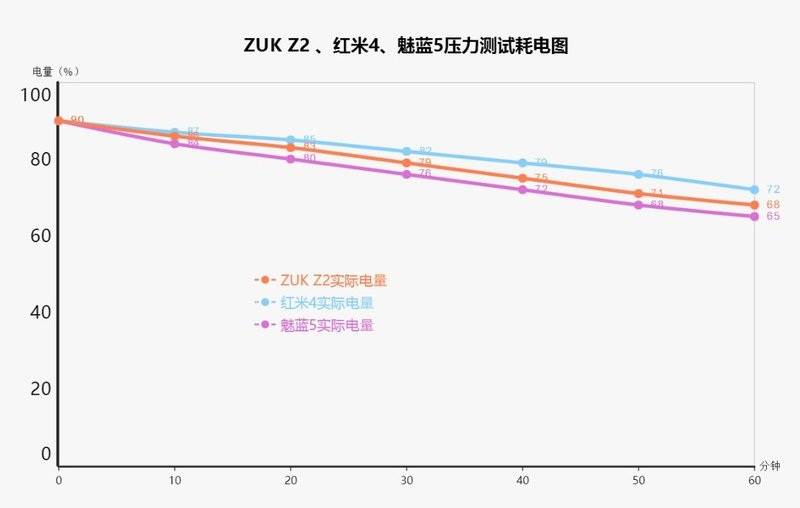
Generally, all three competitors show almost similar results. So it’s difficult to define which of them is better. This allows us to think the thousand-yuan smartphones market offers different models made of different materials and packed with different features. All three manufacturers are doing their best to come in with excellent models. As for this comparison, none of them is a winner. On the other hand, if taking into account the absolute number of ‘prizes’ the Xiaomi Redmi 4 Prime can be conditionally considered as the leader in the thousand-yuan market.
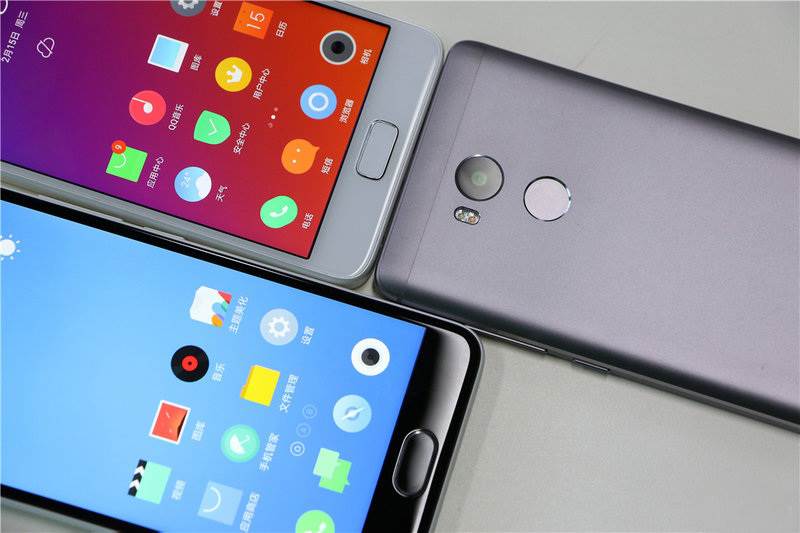






![[CES 2026] Quest For Perfect Color…Samsung To Push](https://loginby.com/itnews/wp-content/uploads/2025/12/CES-2026-Quest-For-Perfect-Color…Samsung-To-Push-100x75.jpg)
